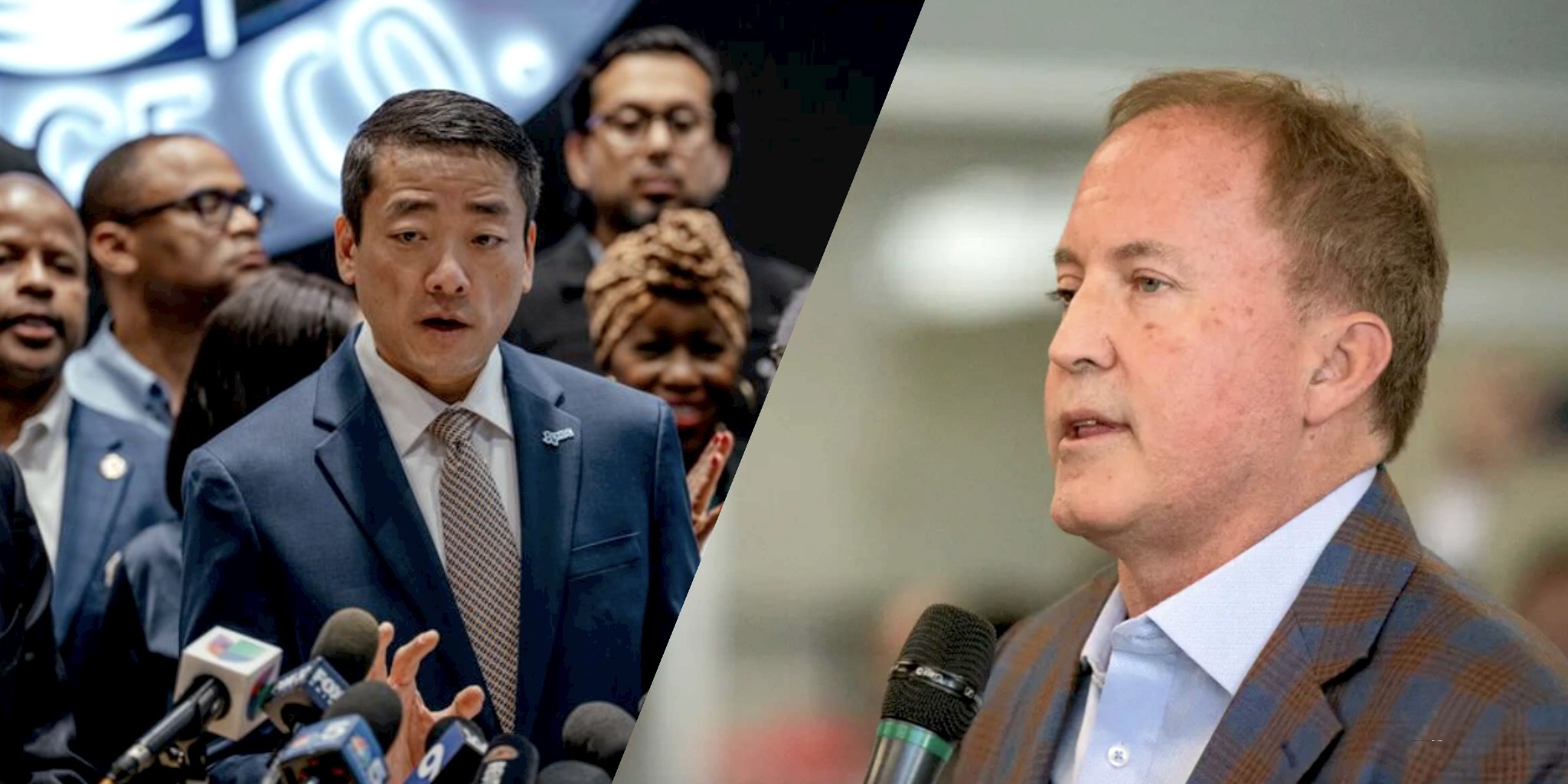
Attorney General Ken Paxton escalated a high-stakes impasse over a Republican-led redistricting plan on Friday by requesting that the Texas Supreme Court expel 13 Democratic members of the state House.
The action is in response to Gov. Greg Abbott's previous request to remove Rep. Gene Wu of Houston, the chair of the House Democrats, from office. In addition to Wu, Paxton's filing includes 12 other representatives: Jessica González and Mihaela Plesa of Dallas; Suleman Lalani of Sugar Land; Christina Morales of Houston; Ron Reynolds of Missouri City; Ana-María Rodríguez Ramos of Richardson; and Chris Turner of Grand Prairie.
Paxton contended that the lawmakers "abandoned their offices" by departing Texas last Sunday to obstruct the ratification of new congressional maps that could potentially give Republicans five additional congressional seats. The members "intentionally halted all legislative work" and "made incriminating public statements regarding their refusal to return," according to him.
Paxton wrote, "By any standard that defines the abandonment of office."
Quorum-breaking, which occurs when lawmakers depart to prevent the chamber from attaining the minimum attendance required to vote, has been a feature of Texas politics since the 1870s. The act of participating in a strike has never resulted in the expulsion of any member. In 2021, the courts upheld quorum-breaking as constitutional and permitted the use of quorum-forcing tactics to compel legislators to return to the chamber.
The current house rules mandate a $500 sanction for each day that a member is absent without leave.
Paxton cautioned that the Texas Legislature would be unable to establish a quorum and that the people of Texas would lack a body capable of exercising legislative authority if members were permitted to engage in quorum-breaking behavior.
In a Friday filing in response to Abbott's previous case, Wu denied that he had abandoned his office. His attorneys maintained that he continues to fulfill his responsibilities "as his judgment dictates". They contended that resignation, death, or a two-thirds vote in the House were all necessary for his removal, none of which had occurred.
Additionally, they contended that the Supreme Court was not the appropriate venue, asserting that Wu was entitled to a jury trial before removal and characterizing the petition as "hearsay."
The court has not yet established a hearing date for Paxton's petition.
















From breaking news to thought-provoking opinion pieces, our newsletter keeps you informed and engaged with what matters most. Subscribe today and join our community of readers staying ahead of the curve.